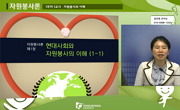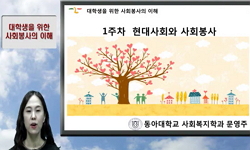The period under the rule of Japanese imperialism has a distinctive phase. For it’s the period engaged with the films which began to be produced just after they had been introduced and flown into Korea under the condition of suffering identity crisi...
http://chineseinput.net/에서 pinyin(병음)방식으로 중국어를 변환할 수 있습니다.
변환된 중국어를 복사하여 사용하시면 됩니다.
- 中文 을 입력하시려면 zhongwen을 입력하시고 space를누르시면됩니다.
- 北京 을 입력하시려면 beijing을 입력하시고 space를 누르시면 됩니다.

친일영화에 새겨진 친일담론의 양상과 ‘국민통합’ 이데올로기 연구 = A Study on a Discourse on Pro-Japanese Aspect in Pro-Japanese Films & ‘National Integration’ Ideology
한글로보기https://www.riss.kr/link?id=A104728582
-
저자
조혜정 (수원대학교)
- 발행기관
- 학술지명
- 권호사항
-
발행연도
2009
-
작성언어
Korean
-
주제어
친일영화 ; 어용영화 ; 군국주의 선전영화 ; 지원병 ; 징병제 ; 내선일체 ; 총후부인 ; 식민정책 ; 영화신체제 ; 조선영화령 ; 조선영화제작주식회사 ; pro-Japanese film ; government-patronized film ; film propagating Japanese militarism ; volunteer ; conscription system ; unification of Japan and Chosun(內鮮一體) ; Chonghu Buin(銃後婦人) ; colonial policy ; new film system ; Chosun Film Act(朝鮮映畵令) ; Chosun Film Production Corporation
-
등재정보
KCI등재
-
자료형태
학술저널
-
수록면
371-398(28쪽)
-
KCI 피인용횟수
5
- 제공처
-
0
상세조회 -
0
다운로드
부가정보
다국어 초록 (Multilingual Abstract)
Although the pro-Japanese films are named for various terms such as ‘government-patronized film’, ‘film propagating Japanese militarism’, ‘nation-governing film’ according to the producing body and producing intention, and implicative ideology, they hold the messages in essence of amicable and cooperative with Japanese Colonialism and even to defend and spread it. So that they could erase(Chosun)nation willingly accepting the state(namely Japan).
In this study, an internal logic of a discourse on pro-Japanese aspect and ‘national integration’ ideology is considered based on three pro-Japanese films still left such as 「Military Train」, 「Volunteer」, 「Straits of Chosun 」. In 「Military Train」(1938), there exists an emphasis that people of Korean peninsular should willingly join the China and Japan War to successfully win the war, and a paradox to accept the Japan as the guardian who would bring in peace to the Orient. The periodic background of the 「Volunteer」(1941) is just before the start of 「Special order for Chosun to volunteer for military service」in 1938 asserting that the true ‘unification of Japan and Chosun’ would be realized by the Chosun youths to volunteer for military service. 「Straits of Chosun」(1943) is the film made in commemoration of conscription system for Chosun youths in 1943, a story of which is about a wife of a volunteer became a Chonghu Buin offering labor without taking care herself while waiting her husband in the battle line focussing a sublime of the ‘blood and sweat’ for the nation.
The pro-Japanese films spread the messages that the natural law for the
Chosun people is to abolish the nation and select the state by setting up the Chosun people adapting themselves to and assimilating with colonial policy. The logic the films focuss is that being the people of the state is the true unification of Japan and Chosun. So many Chosun intellectuals began to accept the assert being overawed by Japanese power overrunning Chinese continent. The pro-Japanese films were the products of such symptom.
The period under the rule of Japanese imperialism has a distinctive phase. For it’s the period engaged with the films which began to be produced just after they had been introduced and flown into Korea under the condition of suffering identity crisis being suppressed by a strong magnetic force like Japanese Colonialism. Especially, entering the end of the Japanese imperialism, the appearance of the so called, ‘Pro-Japanese film’ occurred the most argumentative discourse in Korean film history.
Although the pro-Japanese films are named for various terms such as ‘government-patronized film’, ‘film propagating Japanese militarism’, ‘nation-governing film’ according to the producing body and producing intention, and implicative ideology, they hold the messages in essence of amicable and cooperative with Japanese Colonialism and even to defend and spread it. So that they could erase(Chosun)nation willingly accepting the state(namely Japan).
In this study, an internal logic of a discourse on pro-Japanese aspect and ‘national integration’ ideology is considered based on three pro-Japanese films still left such as 「Military Train」, 「Volunteer」, 「Straits of Chosun 」. In 「Military Train」(1938), there exists an emphasis that people of Korean peninsular should willingly join the China and Japan War to successfully win the war, and a paradox to accept the Japan as the guardian who would bring in peace to the Orient. The periodic background of the 「Volunteer」(1941) is just before the start of 「Special order for Chosun to volunteer for military service」in 1938 asserting that the true ‘unification of Japan and Chosun’ would be realized by the Chosun youths to volunteer for military service. 「Straits of Chosun」(1943) is the film made in commemoration of conscription system for Chosun youths in 1943, a story of which is about a wife of a volunteer became a Chonghu Buin offering labor without taking care herself while waiting her husband in the battle line focussing a sublime of the ‘blood and sweat’ for the nation.
The pro-Japanese films spread the messages that the natural law for the
Chosun people is to abolish the nation and select the state by setting up the Chosun people adapting themselves to and assimilating with colonial policy. The logic the films focuss is that being the people of the state is the true unification of Japan and Chosun. So many Chosun intellectuals began to accept the assert being overawed by Japanese power overrunning Chinese continent. The pro-Japanese films were the products of such symptom.
국문 초록 (Abstract)
친일영화는 제작주체와 제작의도, 내포하고 있는 이데올로기에 따라 ‘어용영화’, ‘군국주의 선전영화’, ‘국책영화’ 등 다양한 용어로 명명되고 있지만, 그 본질은 일제의 식민정책에 우호적이고 협조적이며 나아가 이를 옹호하고 전파하는 메시지를 담고 있다. 그럼으로써 (조선)민족을 지우고 (일본이라는) 국가를 기꺼이 받아들인다.
이 연구는 현재 남아 있는 친일영화중 「군용열차」, 「지원병」, 「조선해협」등 3편의 영화를 토대로 친일담론의 양상과 ‘국민통합’ 이데올로기의 내적 논리를 고찰하고 있다. 「군용열차」는 중일전쟁의 성공적인 수행에 반도인들도 기꺼이 나서야 함을 강조하며, 일본을 동양평화의 수호자로 받아들일 것을 역설한다. 지원병은 1938년 「육군특별지원병령」이 시행되기 직전을 영화적 배경으로 하여 조선청년이 지원병이 되는 것이야말로 ‘내선일체’의 진정한 실현이라고 주장한다. 「조선해협」은 1943년 조선인 징병제 실시를 기념하여 제작한 영화로서, 지원병이 되어 전선으로 떠나간 남편과 그를 기다리며 ‘총후부인’이 되어 몸을 돌보지 않고 노동력을 제공하는 아내의 모습을 통해 국가를 위한 ‘피와 땀’의 고귀함을 강조한다.
친일영화는 일제의 식민정책에 순응하고 동화되는 조선인을 설정함으로써 민족을 폐기하고 국가를 선택하는 것이 순리라는 메시지를 유포한다. 국가의 국민이 되는 것이야말로 진정한 내선일체라는 논리이다. 중국대륙을 유린하는 일본의 힘에 압도되어 적지 않은 조선 지식인들이 이 논리를 받아들이기 시작했다. 친일영화는 그러한 징후의 산물이었다.
한국영화사에서 일제강점기는 독특한 위상을 가진다. 일제강점기는 영화가 전래ㆍ유입된 이후 한국에서 영화가 제작되는 시기와 맞물리고, 일제식민통치의 강력한 자장 속에 한국영화가 ...
한국영화사에서 일제강점기는 독특한 위상을 가진다. 일제강점기는 영화가 전래ㆍ유입된 이후 한국에서 영화가 제작되는 시기와 맞물리고, 일제식민통치의 강력한 자장 속에 한국영화가 정체성의 고민을 드러내던 시기였기 때문이다. 특히 강점 말기로 접어들며 이른바 ‘친일영화’의 출현은 한국영화사에서 가장 논쟁적인 담론을 이끌어내기도 하였다.
친일영화는 제작주체와 제작의도, 내포하고 있는 이데올로기에 따라 ‘어용영화’, ‘군국주의 선전영화’, ‘국책영화’ 등 다양한 용어로 명명되고 있지만, 그 본질은 일제의 식민정책에 우호적이고 협조적이며 나아가 이를 옹호하고 전파하는 메시지를 담고 있다. 그럼으로써 (조선)민족을 지우고 (일본이라는) 국가를 기꺼이 받아들인다.
이 연구는 현재 남아 있는 친일영화중 「군용열차」, 「지원병」, 「조선해협」등 3편의 영화를 토대로 친일담론의 양상과 ‘국민통합’ 이데올로기의 내적 논리를 고찰하고 있다. 「군용열차」는 중일전쟁의 성공적인 수행에 반도인들도 기꺼이 나서야 함을 강조하며, 일본을 동양평화의 수호자로 받아들일 것을 역설한다. 지원병은 1938년 「육군특별지원병령」이 시행되기 직전을 영화적 배경으로 하여 조선청년이 지원병이 되는 것이야말로 ‘내선일체’의 진정한 실현이라고 주장한다. 「조선해협」은 1943년 조선인 징병제 실시를 기념하여 제작한 영화로서, 지원병이 되어 전선으로 떠나간 남편과 그를 기다리며 ‘총후부인’이 되어 몸을 돌보지 않고 노동력을 제공하는 아내의 모습을 통해 국가를 위한 ‘피와 땀’의 고귀함을 강조한다.
친일영화는 일제의 식민정책에 순응하고 동화되는 조선인을 설정함으로써 민족을 폐기하고 국가를 선택하는 것이 순리라는 메시지를 유포한다. 국가의 국민이 되는 것이야말로 진정한 내선일체라는 논리이다. 중국대륙을 유린하는 일본의 힘에 압도되어 적지 않은 조선 지식인들이 이 논리를 받아들이기 시작했다. 친일영화는 그러한 징후의 산물이었다.
참고문헌 (Reference)
1 "「지원병」(DVD), 『발굴된 과거: 일제시기 극영화, 1940년대』, 한국영상자료원, 2007"
2 "「조선해협」(DVD), 『발굴된 과거: 일제시기 극영화, 1940년대』, 한국영상자료원"
3 安田榮, "「대동아전과 영화인의 임무」, 『매일신보』 1943.9.23"
4 조혜정, "「군용열차」, 「지원병」에서 살펴본 친일영화 내러티브의 구조적 이분법과 이데올로기" 한국영화사학회 6 : 2007
5 "「군용열차」(DVD), 『발굴된 과거: 두번째/1930년대 조선영화 모음』, 한국영상자료원"
6 안종화, "한국영화측면비사" 현대미학사 1998
7 이영일, "한국영화전사" 도서출판 소도 2004
8 김려실, "투사하는 제국 투영하는 식민지" 삼인 2006
9 강성률, "친일영화의 내적 논리 연구" 동국대 대학원 2007
10 강성률, "친일영화" 로크미디어 2006
1 "「지원병」(DVD), 『발굴된 과거: 일제시기 극영화, 1940년대』, 한국영상자료원, 2007"
2 "「조선해협」(DVD), 『발굴된 과거: 일제시기 극영화, 1940년대』, 한국영상자료원"
3 安田榮, "「대동아전과 영화인의 임무」, 『매일신보』 1943.9.23"
4 조혜정, "「군용열차」, 「지원병」에서 살펴본 친일영화 내러티브의 구조적 이분법과 이데올로기" 한국영화사학회 6 : 2007
5 "「군용열차」(DVD), 『발굴된 과거: 두번째/1930년대 조선영화 모음』, 한국영상자료원"
6 안종화, "한국영화측면비사" 현대미학사 1998
7 이영일, "한국영화전사" 도서출판 소도 2004
8 김려실, "투사하는 제국 투영하는 식민지" 삼인 2006
9 강성률, "친일영화의 내적 논리 연구" 동국대 대학원 2007
10 강성률, "친일영화" 로크미디어 2006
11 김정혁, "조선영화진흥의 목표" 1941
12 이영재, "제국 일본의 조선영화" 현실문화 2008
13 김종원, "일제말기의 군국주의 어용영화" 2005
14 조혜정, "일제 강점말기 '영화신체제'와 조선영화(인)의 상호작용 연구" 한국영화학회 (35) : 433-452, 2008
15 이규환, "영화전개망-영화인들의 심신안정이 필요" 1940
16 김정혁, "영화령의 실시와 조선영화계의 장래" 1940
17 김종욱, "실록 한국영화총서(하)" 국학자료원 2002
18 서광제, "신체제와 영화" 1940
19 安田榮, "신역에서 받자온 그 크신 뜻" 1941
20 강옥희, "식민지시대 대중예술인 사전" 도서출판 소도 2006
21 한국영상자료원, "고려영화협회와 영화신체제" 한국영상자료원 2007
동일학술지(권/호) 다른 논문
-
김성수의 식민지 권력에 대한 저항과 협력-‘협력적 저항’에서 ‘저항적 협력’으로-
- 한국민족운동사학회
- 이완범
- 2009
- KCI등재
-
- 한국민족운동사학회
- 유상수
- 2009
- KCI등재
-
1930년대 이후 한글신문의 구조적 변화와 기자들의 동향 -『동아일보』와 『조선일보』를 중심으로-
- 한국민족운동사학회
- 성주현
- 2009
- KCI등재
-
『內下冊子目錄』을 통해 본 고종의 개화관련 서적 수집 실상과 영향
- 한국민족운동사학회
- 장영숙
- 2009
- KCI등재
분석정보
인용정보 인용지수 설명보기
학술지 이력
| 연월일 | 이력구분 | 이력상세 | 등재구분 |
|---|---|---|---|
| 2026 | 평가예정 | 재인증평가 신청대상 (재인증) | |
| 2020-01-01 | 평가 | 등재학술지 유지 (재인증) |  |
| 2017-01-01 | 평가 | 등재학술지 유지 (계속평가) |  |
| 2013-01-01 | 평가 | 등재학술지 유지 (등재유지) |  |
| 2010-01-01 | 평가 | 등재학술지 유지 (등재유지) |  |
| 2008-01-01 | 평가 | 등재학술지 유지 (등재유지) |  |
| 2005-01-01 | 평가 | 등재학술지 선정 (등재후보2차) |  |
| 2004-01-01 | 평가 | 등재후보 1차 PASS (등재후보1차) |  |
| 2002-01-01 | 평가 | 등재후보학술지 선정 (신규평가) |  |
학술지 인용정보
| 기준연도 | WOS-KCI 통합IF(2년) | KCIF(2년) | KCIF(3년) |
|---|---|---|---|
| 2016 | 0.81 | 0.81 | 0.72 |
| KCIF(4년) | KCIF(5년) | 중심성지수(3년) | 즉시성지수 |
| 0.65 | 0.66 | 1.616 | 0.06 |




 KISS
KISS




